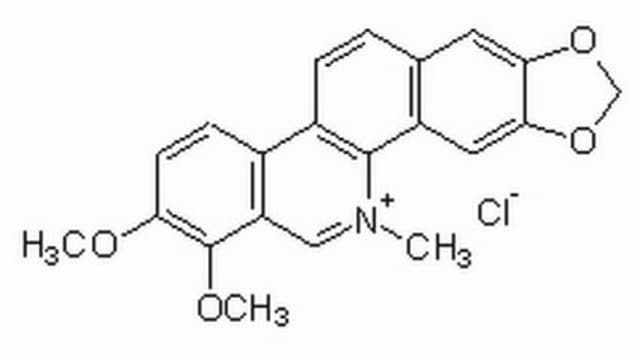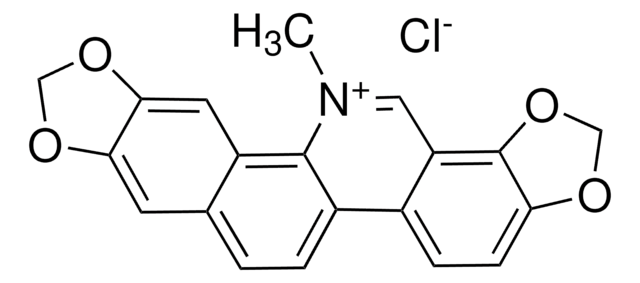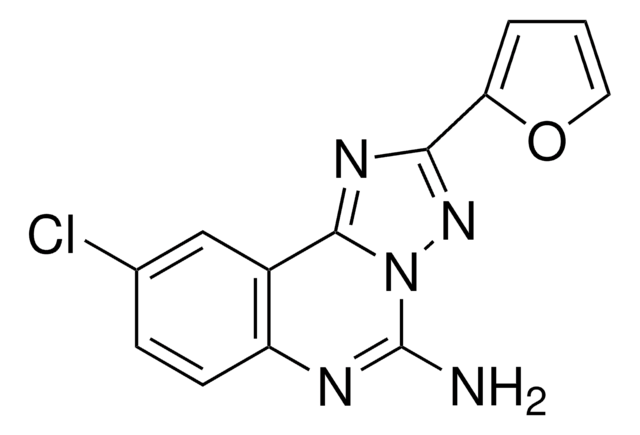C2932
Chelerythrine chloride
≥95% (TLC), powder
Synonym(s):
1,2-Dimethoxy-N-methyl(1,3)benzodioxolo(5,6-c)phenanthridinium chloride, Toddaline chloride
About This Item
Recommended Products
biological source
plant
Quality Level
Assay
≥95% (TLC)
form
powder
color
yellow to orange
mp
213.0-214.0 °C
solubility
DMSO: 2 mg/mL
storage temp.
−20°C
SMILES string
Cl.COc1ccc2-c3ccc4cc5OCOc5cc4c3[N](C)=Cc2c1OC
InChI
1S/C21H18NO4.ClH/c1-22-10-16-13(6-7-17(23-2)21(16)24-3)14-5-4-12-8-18-19(26-11-25-18)9-15(12)20(14)22;/h4-10H,11H2,1-3H3;1H
InChI key
SUPBMPBJXZDANZ-UHFFFAOYSA-N
Looking for similar products? Visit Product Comparison Guide
General description
Application
- as a supplement in heat-inactivated late-embryo extract or late-embryo extract to inhibit protein kinase C (PKC) activity
- for in vitro Xenopus experiments
- as a PKC inhibitor in HL-1 cells, to block the PKC pathway to study its effects on doxazosin-induced galectin-3 and collagen expression
Biochem/physiol Actions
Features and Benefits
Signal Word
Warning
Hazard Statements
Precautionary Statements
Hazard Classifications
Acute Tox. 4 Dermal - Acute Tox. 4 Inhalation - Acute Tox. 4 Oral - Eye Irrit. 2 - Skin Irrit. 2 - STOT SE 3
Target Organs
Respiratory system
Storage Class Code
11 - Combustible Solids
WGK
WGK 3
Flash Point(F)
Not applicable
Flash Point(C)
Not applicable
Certificates of Analysis (COA)
Search for Certificates of Analysis (COA) by entering the products Lot/Batch Number. Lot and Batch Numbers can be found on a product’s label following the words ‘Lot’ or ‘Batch’.
Already Own This Product?
Find documentation for the products that you have recently purchased in the Document Library.
Customers Also Viewed
Our team of scientists has experience in all areas of research including Life Science, Material Science, Chemical Synthesis, Chromatography, Analytical and many others.
Contact Technical Service













